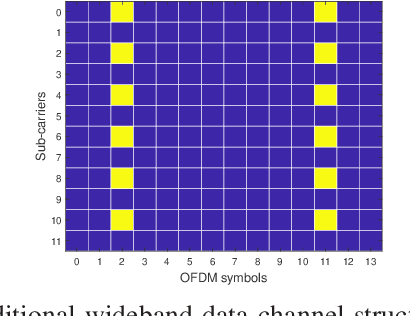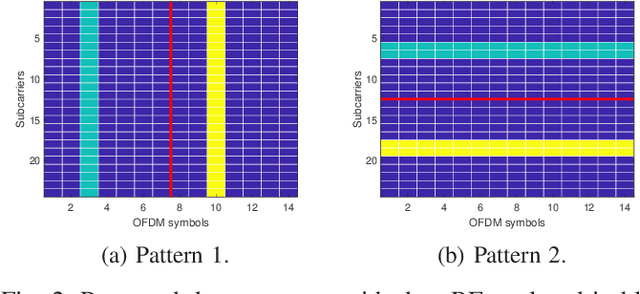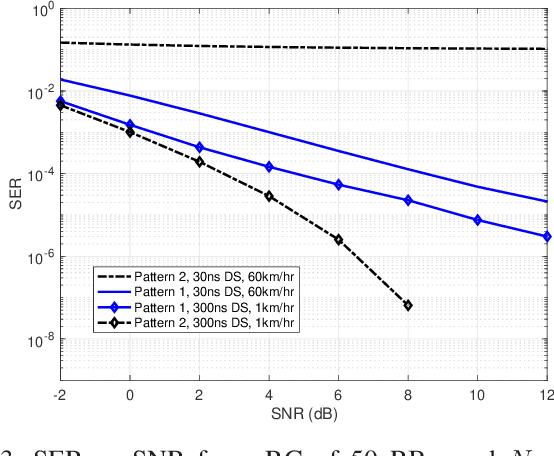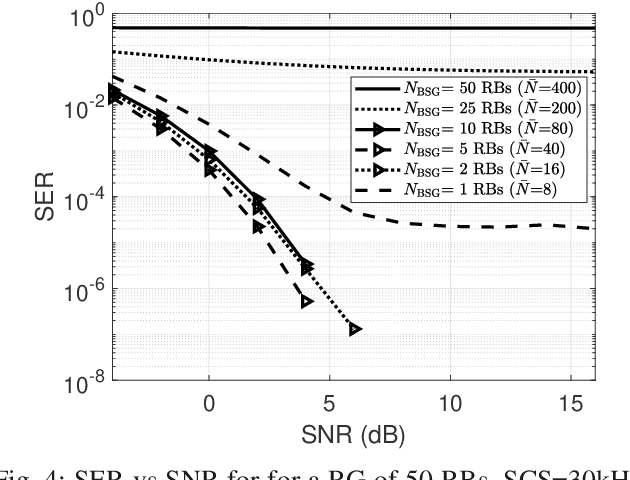Mihaela Beluri
Unsupervised Learning for Pilot-free Transmission in 3GPP MIMO Systems
Feb 04, 2023



Abstract:Reference signals overhead reduction has recently evolved as an effective solution for improving the system spectral efficiency. This paper introduces a new downlink data structure that is free from demodulation reference signals (DM-RS), and hence does not require any channel estimation at the receiver. The new proposed data transmission structure involves a simple repetition step of part of the user data across the different sub-bands. Exploiting the repetition structure at the user side, it is shown that reliable recovery is possible via canonical correlation analysis. This paper also proposes two effective mechanisms for boosting the CCA performance in OFDM systems; one for repetition pattern selection and another to deal with the severe frequency selectivity issues. The proposed approach exhibits favorable complexity-performance tradeoff, rendering it appealing for practical implementation. Numerical results, using a 3GPP link-level testbench, demonstrate the superiority of the proposed approach relative to the state-of-the-art methods.
Vandermonde Constrained Tensor Decomposition for Hybrid Beamforming in Multi-Carrier MIMO Systems
Nov 30, 2022



Abstract:Hybrid beamforming has evolved as a promising technology that offers the balance between system performance and design complexity in mmWave MIMO systems. Existing hybrid beamforming methods either impose unit-modulus constraints or a codebook constraint on the analog precoders/combiners, which in turn results in a performance-overhead tradeoff. This paper puts forth a tensor framework to handle the wideband hybrid beamforming problem, with Vandermonde constraints on the analog precoders/combiners. The proposed method strikes the balance between performance, overhead and complexity. Numerical results on a 3GPP link-level test bench reveal the efficacy of the proposed approach relative to the codebook-based method while attaining the same feedback overhead. Moreover, the proposed method is shown to achieve comparable performance to the unit-modulus approaches, with substantial reductions in overhead.
 Add to Chrome
Add to Chrome Add to Firefox
Add to Firefox Add to Edge
Add to Edge